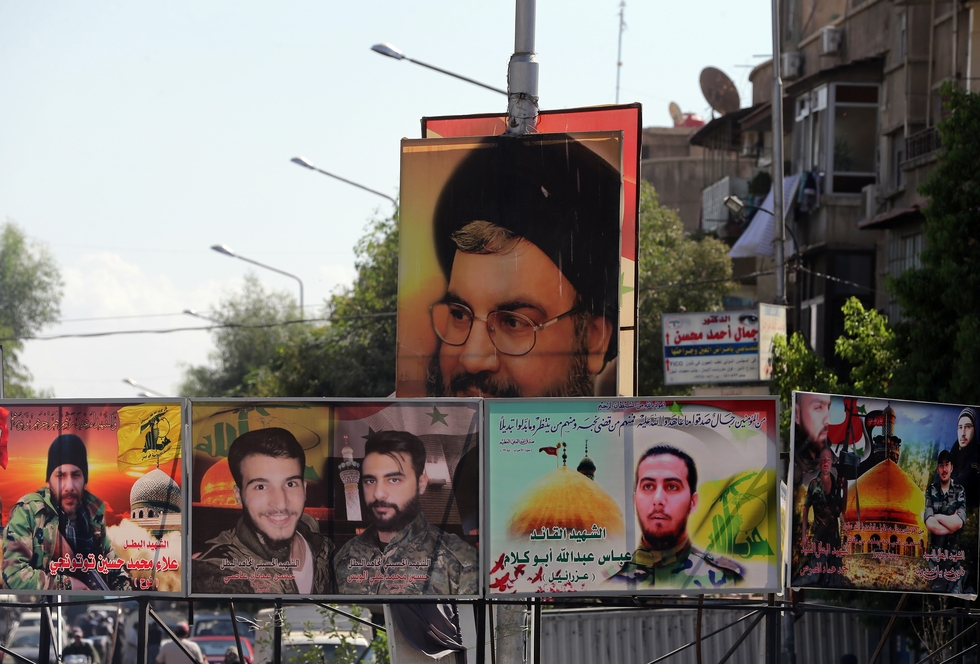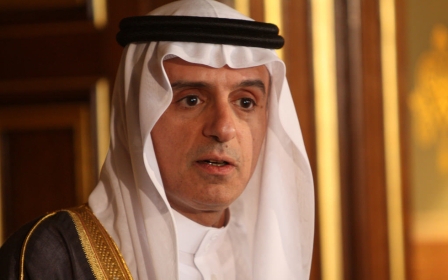Iran and Hezbollah controlling Assad's army, say Syrian army defectors

Iranian and Lebanese forces are in de facto control of Syrian President Bashar al-Assad’s army, according to former Syrian soldiers.
Khaled al-Shami told Middle East Eye columnist Lara Nelson that foreign militias have overrun the Syrian army.
“One important thing to realise is that there is no Syrian army anymore, it is just militias, mostly Iranians and Lebanese,” he told Nelson, in a column published on Wednesday.
Shami defected from Assad’s troops to join the Syrian opposition in July. He was a soldier in the ninth armoured division and served in southern Syria, where President Assad’s forces are battling a coalition of rebel groups.
Now living in Jordan, Shami said that 70 percent of troops in the ninth armoured division are either Lebanese or Iranian.
Iran and Lebanese militia Hezbollah – along with Russia – have been key backers of President Assad in his war against rebel groups seeking his overthrow.
Iranian officials have repeatedly claimed that they have only provided military advisers to President Assad, not troops on the ground.
Iranian Foreign Minister Mohammad Javad Zarif has defended his country’s role in Syria, saying that Iran is attempting to facilitate a process to allow Syrians self-determination without outside interference.
However, recent reports suggest that thousands of Iranians have joined a major offensive in northern Syria to reclaim territory from rebel groups.
Hezbollah is open about its military support for President Assad, and have said it is pre-emptively striking groups including the Islamic State to stop them gaining a foothold in Lebanon.
Hezbollah is listed as a terrorist group by the United States and European Union but Russia said on Sunday that they consider the group, which has elected parliamentarians in Lebanon, a “legitimate socio-political force”.
Former Syrian soldier Shami said his experience in the army suggested Iran and Hezbollah are not playing a supporting role, and instead are controlling President Assad’s forces.
“The Iranians and Hezbollah are not under the control of the Syrian army, it’s the exact opposite,” he said.
“Ten high-ranking Iranian officers control the [ninth armoured] division, they plan the operations. Only Iranian or Hezbollah forces can access operations rooms, no Syrian soldiers are allowed in.”
Shami said that in battles “the commander is an Iranian IRGC (Iran’s Revolutionary Guard Corps), his deputy will be a Hezbollah officer.”
Abu Osama al-Jolani, a Free Syrian Army commander and former Syrian army officer, told Nelson: “Everyone we are fighting now are foreigners.”
Another Syrian army officer who had defected told Nelson that Syrians in President Assad’s army are treated poorly compared with Iranians and Lebanese.
“Even the civilian Lebanese militia have the power to tell a Syrian general what to do, to send him back to his office,” the soldier, who asked to remain anonymous, said. “They have better food than us, better weapons, and more respect.”
“These militia believe they are there to defend Syria when the regular army has failed so they treat us as failures with no respect.”
Shami claimed that he was paid $60 a month in the army and that Hezbollah fighters are paid $400. He said he watched as two other would-be defectors were killed by Syrian soldiers as they tried to make an escape.
He said the Iranian and Hezbollah forces, supplemented by various Shia militias mostly from Iraq, have “occupied” Sunni mosques in areas under their control and put up posters of the late Iranian Ayatollah Ruhollah Khomeini and Hezbollah leader Hassan Nasrallah.
Speaking to Middle East Eye from Amman, Shami thanked the Free Syrian Army “for their help to rescue my life and helping me with my defection and helping me to be on the right side”.
President Assad’s forces were bolstered recently by Russia’s intervention on his behalf, which was reportedly prompted by the Syrian army’s plunging resources.
The Guardian reported in October that Syria’s army now has between 80,000 and 100,000 soldiers, down from a pre-2011 high of 300,000.
Western nations have longed called for the removal of Assad. However, after recent IS attacks in Paris killed 129 people, prominent figures have decided to back the beleaguered Syrian president.
Former British army chief Sir David Richards said on Wednesday that Assad represented the “most credible” force on the ground to fight IS.
Spanish Foreign Minister Jose Manuel Garcia-Margallo has also said that Assad represents a “lesser evil” than IS and called for cooperation with Damascus against IS.
More than 250,000 people have been killed in Syria’s civil war, which began in mid-2011 after President Assad brutally put down protests calling for democratic reforms.
Members of the international community met in Austria recently to try and find an agreed end to the civil war, although no Syrians were present at the talks.
The International Syria Support Group, which includes the UN, EU, US and others, announced a proposal to implement an immediate ceasefire and hold elections within 18 months. However, Syrian opposition groups denounced the plan as “nothing more than talk”.
Stay informed with MEE's newsletters
Sign up to get the latest alerts, insights and analysis, starting with Turkey Unpacked
Middle East Eye delivers independent and unrivalled coverage and analysis of the Middle East, North Africa and beyond. To learn more about republishing this content and the associated fees, please fill out this form. More about MEE can be found here.





